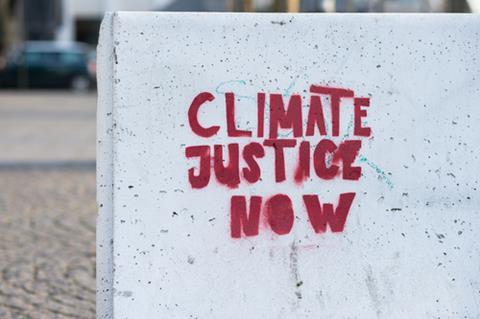By Bettina Reinboth (@BettinaReinboth), Head of Social Issues, the PRI

Climate change is – quite rightly – at the top of investors’ ESG agenda in 2019. As investors increasingly address climate change within their investments, it is important to remember that climate change is as much a social issue as an environmental one. And, as we celebrate International Women’s Day, it is also important to address gender inequality as we move towards a low-carbon global economy.
According to a report by the ILO , the impacts of climate change and mitigation or adaptation measures that exclude women in decision making, can act as a barrier to achieving gender equality in the world of work.
In light of this, the concept of the ‘just transition’ is gaining ground. The idea is enshrined in the Paris climate agreement, which talks about “the imperatives of a just transition of the workforce and the creation of decent work and quality jobs” in the context of its objective to limit climate change.

In practice, this means ensuring that the transition to a low-carbon economy is inclusive, and that those workers and communities who find themselves ‘stranded’ by the phasing-out of carbon-intensive industries are supported – with social security, training and with new employment opportunities.
Investors have a key role to play, whether by allocating capital to ventures that directly provide alternative employment, engaging with those companies operating in affected communities, or by influencing the policy process to ensure government support is forthcoming. The PRI, with partners including LSE, Harvard Kennedy School and the ITUC recently produced a guide for investor action on climate change and the just transition.
Gender equality must be an important element of this work. In any sort of transition, inequalities of any kind can be exacerbated, whether social or economic. Investors need to be mindful of the drivers that can disadvantage women in communities under pressure, and which can restrict their access to the initiatives and opportunities that seek to smooth the transition.
Failing to take account of the social dimension in general, and the gender element in particular, creates risk to climate policy: risk that backlash forces delays, dilution or the abandonment of aggressive action. For investors, the stalling or reversal of climate policy could threaten the profitability of specific low-carbon investments, as well as adding to the already worrying levels of systemic risk posed by climate change.
There is also a well-understood economic opportunity to be grasped. As research from the McKinsey Global Institute demonstrated, US$26 trillion, or 26%, could be added to annual global GDP by 2025 if women played an identical role in the labour markets to that of men – that is, if they participated at the same rate in the economy, with the same hours worked and with the same representation within each sector (which affects their productivity). Even a much more modest balancing of the gender gap would yield enormous economic benefit.
If women played an identical role in the labour markets to that of men, US$26 trillion, or 26%, could be added to annual global GDP
These risks and opportunities are perhaps greatest in emerging economies, where women are typically more vulnerable and socially and economically marginalised than their peers in the developed world. Conversely, as the economic power and involvement in the workforce grows, they are an important source of demand (for products, services and capital) that companies would do well to nurture.
Investors need to step up to address gender inequality. The PRI is working to address the ‘S’ in ESG from an investor perspective, with recent reports covering human rights in the extractives industry and how investors can respond to income inequality. Gender must be central to these efforts: as the International Women’s Day campaign slogan #BalanceforBetter reminds us, a balanced world is a better world.
This blog is written by PRI staff members and guest contributors. Our goal is to contribute to the broader debate around topical issues and to help showcase some of our research and other work that we undertake in support of our signatories.
Please note that although you can expect to find some posts here that broadly accord with the PRI’s official views, the blog authors write in their individual capacity and there is no “house view”. Nor do the views and opinions expressed on this blog constitute financial or other professional advice.
If you have any questions, please contact us at [email protected].












